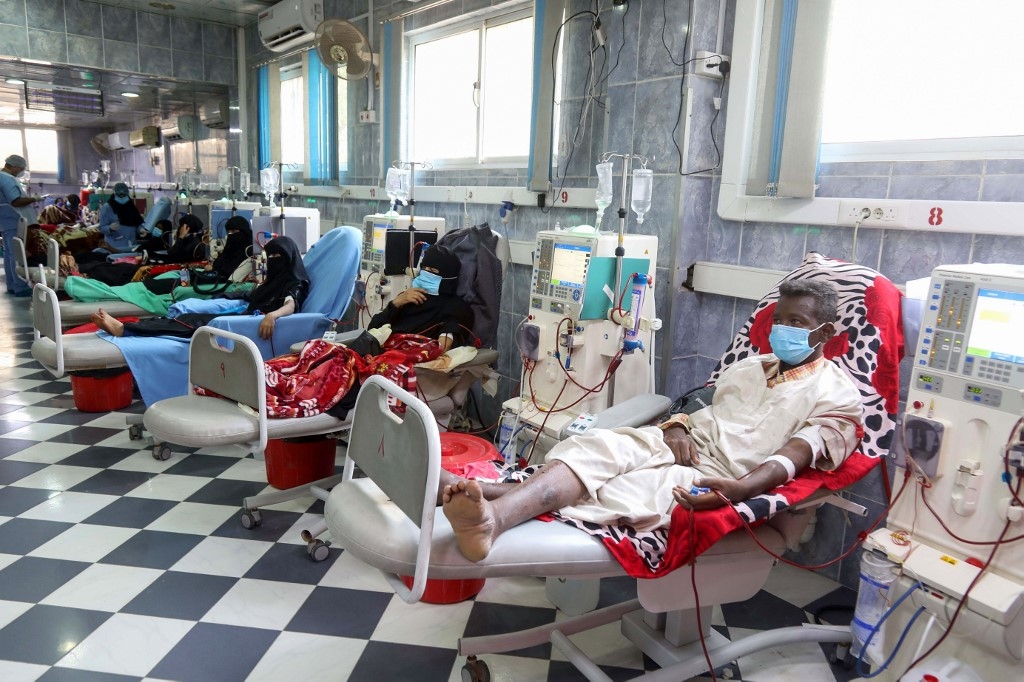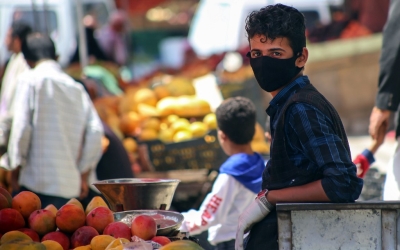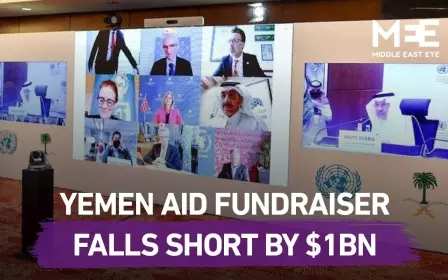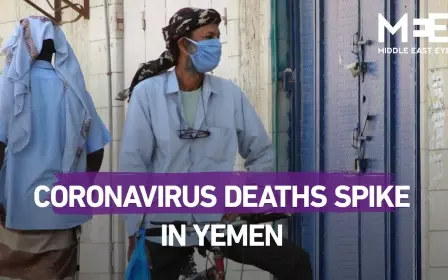Yemen's health-care system has 'collapsed' under weight of coronavirus

The coronavirus pandemic has caused Yemen's health-care system to "collapse completely", with a lack of doctors and protective equipment expected to cause many more avoidable deaths, Doctors Without Borders (MSF) warned.
Claire HaDuong, the head of MSF's mission in Yemen, said on Wednesday that since Covid-19 reached the country's shores in March it has completed the destruction of Yemen's health-care system that began amid five years of war.
The humanitarian organisation pleaded with the international community for assistance, saying it couldn't deal with the crisis "alone", and urged Houthi rebels - who control large areas in the country's north - to stop hindering the work of aid groups working to curb the outbreak.
'They enter the emergency room walking, but they are already deeply deprived of oxygen without being aware of it, and they die in a surprisingly short amount of time'
- Nizar Jahlan, MSF's Medical Activity Manager in Yemen
"Five years of fighting had caused Yemen's health-care system to collapse in large part," HaDuong said. "Now, Covid-19 has made that collapse complete, with many hospitals closing for fear of the virus, or for lack of staff and personal protective equipment."
Authorities in Houthi-controlled areas of Yemen confirmed their first case of the disease on 5 May, weeks after the internationally recognised government recorded cases in the country's south.
New MEE newsletter: Jerusalem Dispatch
Sign up to get the latest insights and analysis on Israel-Palestine, alongside Turkey Unpacked and other MEE newsletters
According to Johns Hopkins University, which tracks the global outbreak, there are currently more than 500 cases of Covid-19 in Yemen, most of them in the south, leading the Yemeni government and their Saudi backers to accuse the rebels of under-reporting cases.
"There has been a strange mixture of fear and denial about the virus here," said HaDuong. "People haven't wanted to accept the possibility that it could arrive, or that it was already circulating.
"Unfortunately this seems to be a byproduct of the fear about the virus. People are waiting to come to the hospital until it's much too late, and it makes it incredibly difficult to save them."
Many people will die
Last week, the United Nations warned that its programmes to fight the coronavirus might have to stop by the end the month unless they received an immediate injection of cash.
The world body said it was considering winding down some of its disease outbreak and control programs, including efforts to contain cholera, malaria and dengue fever, among other diseases.
The announcement came after international donors pledged about $1.35bn in humanitarian aid for Yemen, far short of the $2.4bn needed to pull the country back from the brink of further disaster.
MSF's HaDuong called on the UN and the international community to help in the fight against Covid-19, saying: "We cannot face this crisis alone."
"The United Nations and other donor states need to urgently find ways to step up the response. Many people will die of this virus, but we fear that many others will also die from what should have been preventable deaths, because health care is simply not available."
Nizar Jahlan, MSF's Medical Activity Manager in Yemen, also noted that with a lack of doctors and nurses to help treat patients, the crisis was inevitably going to get worse.
"At first, there were many volunteer doctors and nurses around," Jahlan said, "but when they knew that cases were coming to the hospital, they all disappeared."
Yemen has been mired in conflict since 2014 when the Houthis, a rebel group traditionally based in the north of the country, took over the capital Sanaa and large parts of the country.
The conflict metastasized in March 2015 when a Saudi-led military coalition intervened in a bid to restore the government of President Abd-Rabbu Mansour Hadi.
The ongoing war has devastated the country, with about 80 percent of the population - 24 million people - requiring some form of humanitarian or protection assistance, according to UNOCHA.
Middle East Eye delivers independent and unrivalled coverage and analysis of the Middle East, North Africa and beyond. To learn more about republishing this content and the associated fees, please fill out this form. More about MEE can be found here.





